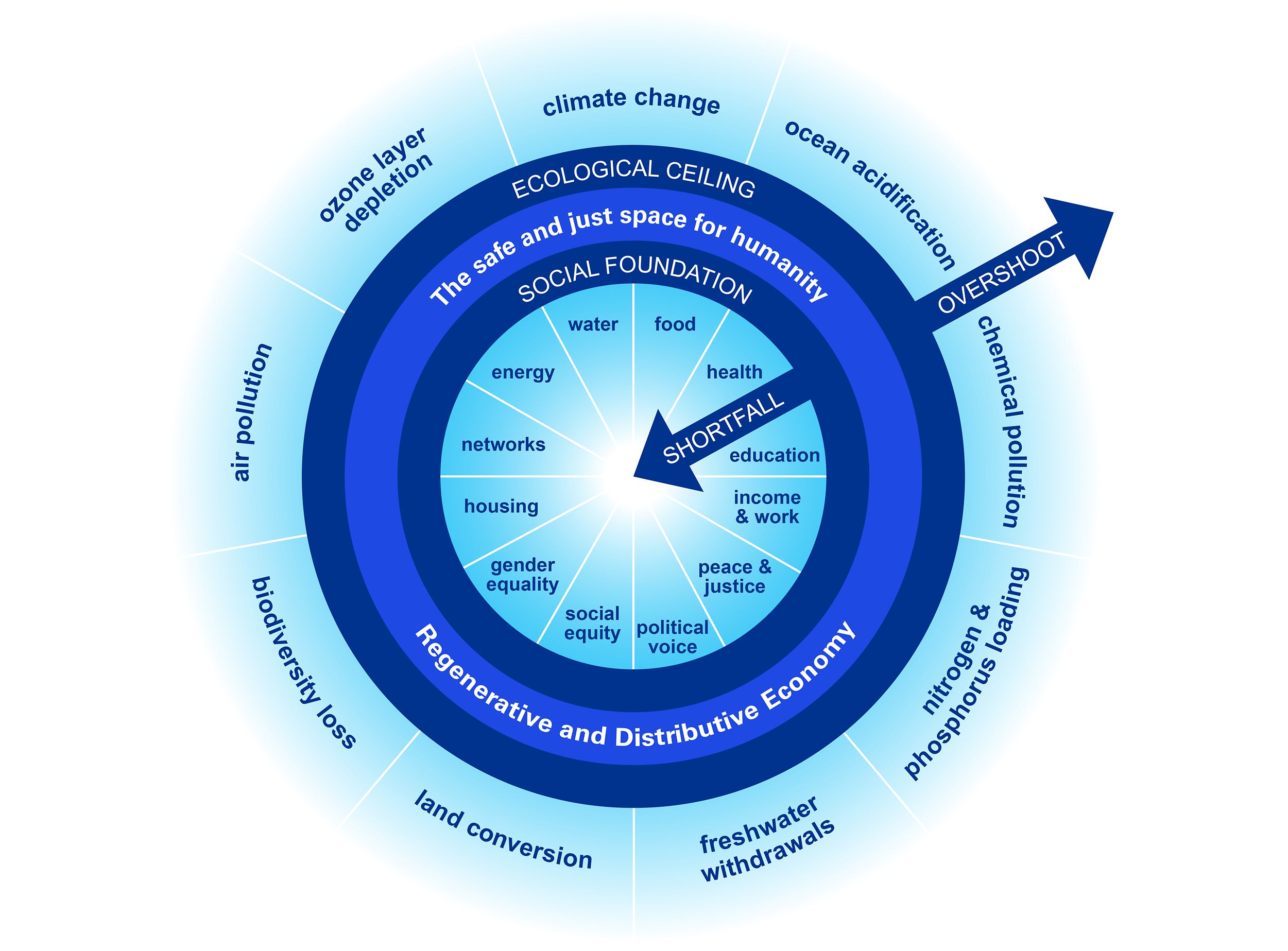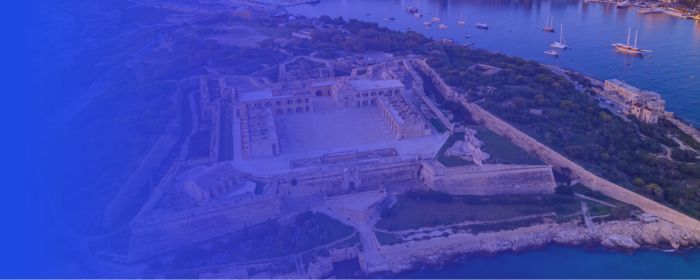No one can deny Malta’s robust economic performance in recent years. Indeed, Malta has often registered strong figures in GDP Growth and employment rates (save for the expected COVID shock), that well outperformed many Member States across the EU. But this begs the question (or multiple questions for that matter) – can this level of growth be sustained forever, and at what cost? Is it being enjoyed equitably across all strata of society? And above all, does more economic growth necessarily result in increased happiness and well-being? The answer is complex and multi-faceted.
Enter Doughnut Economics. No, we are not suggesting engaging in a binge-eating frenzy from a smorgasbord of rainbow-sprinkled doughnuts. Not quite (but quite the mouthful, literary and literally!). Rather, this refers to an elegant visual framework for sustainable economic development.
This framework was initially introduced back in 2012 by Kate Raworth, a Senior Associate at Oxford University and self-proclaimed renegade economist, to promote a new perspective for 21st-century economists. It highlights the importance of aligning economic goals with global environmental objectives. The framework suggests that a healthy economy should not be predominately measured in terms of GDP growth, but rather should be measured in how well the economy is providing for all basic socioeconomic needs in an equitable manner through environmentally regenerative practices.
The framework is graphically presented by two concentric rings representing the ‘Societal Foundation’ and the ‘Ecological Ceiling’, with the doughnut-shaped area in between reflecting the space in which civilisation can prosper. Therefore, organisational design must be done with a purpose to guide society into the doughnut, where welfare is nurtured without overshooting planetary boundaries. A closely associated concept to the doughnut economy, long promoted by environmental economists, is the circular economy which intends to reimagine how to view the product value chain. From a purely theoretical perspective, the ambition of implementing the doughnut economy can come across as too daunting, but the good news is that this concept is not only achievable, but we have been, perhaps unknowingly, working slowly towards it for quite some time.

Source: Doughnut Economics Action Lab
On an international level for instance, substantial progress has been made at alleviating social and environmental issues over the years, like reducing child poverty and banning the use of CFCs (chlorofluorocarbons) with the understanding that directing effort towards such causes generates benefits that far outweigh any economic costs. By being keenly aware of the issues that can be tackled at the local level, communities can also strive to achieve a prosperous way of living that is in harmony with the planet’s health.
In many respects, Malta’s shift to a more sustainable economy is already underway. The beverage container refund scheme for example, pulls this country closer to a circular economy, as waste is returned to the value chain to be reused in new products. The application of economic instruments in the form of a polluter-pays-principle should help the scheme’s adoption by effectively compensating voluntary recycling. Other older initiatives include offering grants and subsidies to help energy consumers gain access to cheaper and greener energy.
Malta has also long prioritised many aspects of the social foundation ring, by ensuring steady progress over the years in areas like access to health and education, and social reforms that promote inclusivity and equality. Indeed, the Sustainable Development Report (SDR) for Malta1 does indicate that the goals pertaining to poverty and quality education have been achieved and associated KPIs on the rise. The latter could be reflected in the optimistic number of students undertaking post-secondary education as well as the substantial number of students enrolling for both undergrad and post-grad courses at tertiary education institutions2.
Despite the good progress, Malta is still far from fully achieving its Sustainable Development Goals (SDG) and currently ranks 33rd among 163 nations. The report highlights some of our major challenges including, prevalent obesity, poor management of our water aquifers, and a lack of renewables in the energy mix. Malta’s road towards sustainability involves moving away from our dependency on fossil fuels in an attempt to meet our emission targets and reduce the impact this is having on urban air pollution – which in some areas exceed EU emission limits3. This is further exacerbated by Malta’s ongoing traffic issues, unaided not least by a public transportation system that is yet to serve as an attractive alternative to the private vehicle. At sea, Malta’s Ocean Health Index is recorded at 41.24 out of a 100, indicating that we have also neglected to properly protect life below water.
Further to this, the population increase experienced on our densely populated island, requires an unprecedented level of planning to ensure Malta can cope with these infrastructural needs in a sustainable manner in the future. This requires us to view the economic model from a quality-of-life perspective, rather than from a purely economic growth perspective, in order to pay more attention to the socioeconomic challenges of our time.
Summing up this article, presenting economic figures alone can often be unreflective of the ongoing challenges that lie beneath the surface. Economic growth is desirable, but it does generally result in a swathe of costs (economic, environmental, and social) which are not quantified. This requires a change in perspective, especially at a policy and strategy level, to de-prioritise economic growth (for the sake of growth) and focus on happiness and well-being, even if this comes at the expense of rampant growth.
Considering other measures like the Happiness Report, the Human Development Index, or as we just described, the Doughnut framework, can provide policymakers with a more accurate depiction of a population’s quality of life that GDP would not otherwise measure. Only then can we hope to move forward in a sustainable manner.
1 https://dashboards.sdgindex.org/static/profiles/pdfs/SDR-2022-malta.pdf
2 https://nso.gov.mt/en/News_Releases/Documents/2022/11/News2022_198.pdf
3 https://timesofmalta.com/articles/view/air-pollution-eight-streets-eu-limit.968323
4 This rating was updated in 2020.



